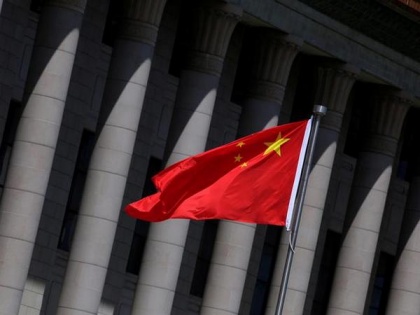Disused copper mine in southwest China becomes focus of calls for thorough probe into COVID-19 origins
By ANI | Published: May 25, 2021 04:27 PM2021-05-25T16:27:40+5:302021-05-25T16:35:02+5:30
A disused copper mine in the outskirts of a village deep in the mountains of southwest China has become the centre of attention for escalating calls for a more thorough probe into whether the COVID-19 pandemic could have stemmed from a Chinese laboratory.

Disused copper mine in southwest China becomes focus of calls for thorough probe into COVID-19 origins
A disused copper mine in the outskirts of a village deep in the mountains of southwest China has become the centre of attention for escalating calls for a more thorough probe into whether the COVID-19 pandemic could have stemmed from a Chinese laboratory.
The Wall Street Journal reported that the area is the subterranean home of the close known virus to the one that causes COVID-19. In April 2012, six miners fell sick with a mysterious illness after entering the mine to clear bat guano, out of which three died.
Following this, scientists from the Wuhan Institute of Virology (WIV) were called in to investigate and after taking samples from bats in the mine, they identified several types of new coronaviruses.
Such circumstances lead to an idea that the SARS-COV-2 virus might have been leaked from a lab in Wuhan, where the first case of COVID-19 was identified in December 2019.
The lab researchers have yet to provide full and prompt answers and there have been some discrepancies in some of the information they had released, leading to demands for a deeper investigation into the Wuhan institute, reports The Wall Street Journal.
Even some senior public health officials, who considered the probability of a lab leak improbable, now back the calls for a fuller probe, saying that the World Health Organization (WHO)-led team had insufficient access in Wuhan earlier this year.
A growing number of people, including the chief of the WHO and a prominent researcher who has worked with the WIV, say that it needs to provide more information about its work to categorically rule out a lab spill.
Three researchers from the WIV had sought hospital care after they fell ill in November 2019, a month before Beijing reported the first patient with COVID-like symptoms, the Wall Street Journal reported earlier.
The report provides fresh details on the number of researchers affected, the timing of their illnesses, and their hospital visits.
Recently, Anthony Fauci, a top adviser to US President Joe Biden on the coronavirus pandemic said he's "not convinced" the deadly virus developed naturally and has called for further investigations into where it emerged.
Fauci was asked during a Poynter event, "United Facts of America: A Festival of Fact-Checking," earlier this month about whether he was confident that COVID-19 developed naturally, Fox News reported.
"No actually. I am not convinced about that. I think we should continue to investigate what went on in China until we continue to find out to the best of our ability what happened," Fauci, the director of the National Institute of Allergies and Infectious Diseases, said.
The controversy about COVID-19 origins has resurfaced after the Weekend Australian newspaper revealed that Chinese scientists were thinking about bioweapons, visualising a World War-III scenario.
Last month, the US Secretary of State Antony Blinken launched a scathing attack against China for a lack of transparency during "the early stages" of the coronavirus pandemic and called for a more thorough investigation into the origins of COVID-19.
His remarks came following the publishing of a joint inquiry by the World Health Organization and China in March. The inquiry did not conclusively establish how or when the virus began spreading and did little to address Western concerns that the Chinese Communist Party bent the investigation to its advantage.
The WHO report determined that the possibility the virus came from a lab was "extremely unlikely," noting there was "no record" any lab had closely related viruses.
China refused to give raw data on early COVID-19 cases to the WHO-led team probing the origins of the pandemic. Beijing has been accused of delaying access to international investigators for months after the initial outbreak, virtually guaranteeing that the lab had been deep-cleaned before any forensic analysis could be done.
( With inputs from ANI )
Disclaimer: This post has been auto-published from an agency feed without any modifications to the text and has not been reviewed by an editor
Open in app